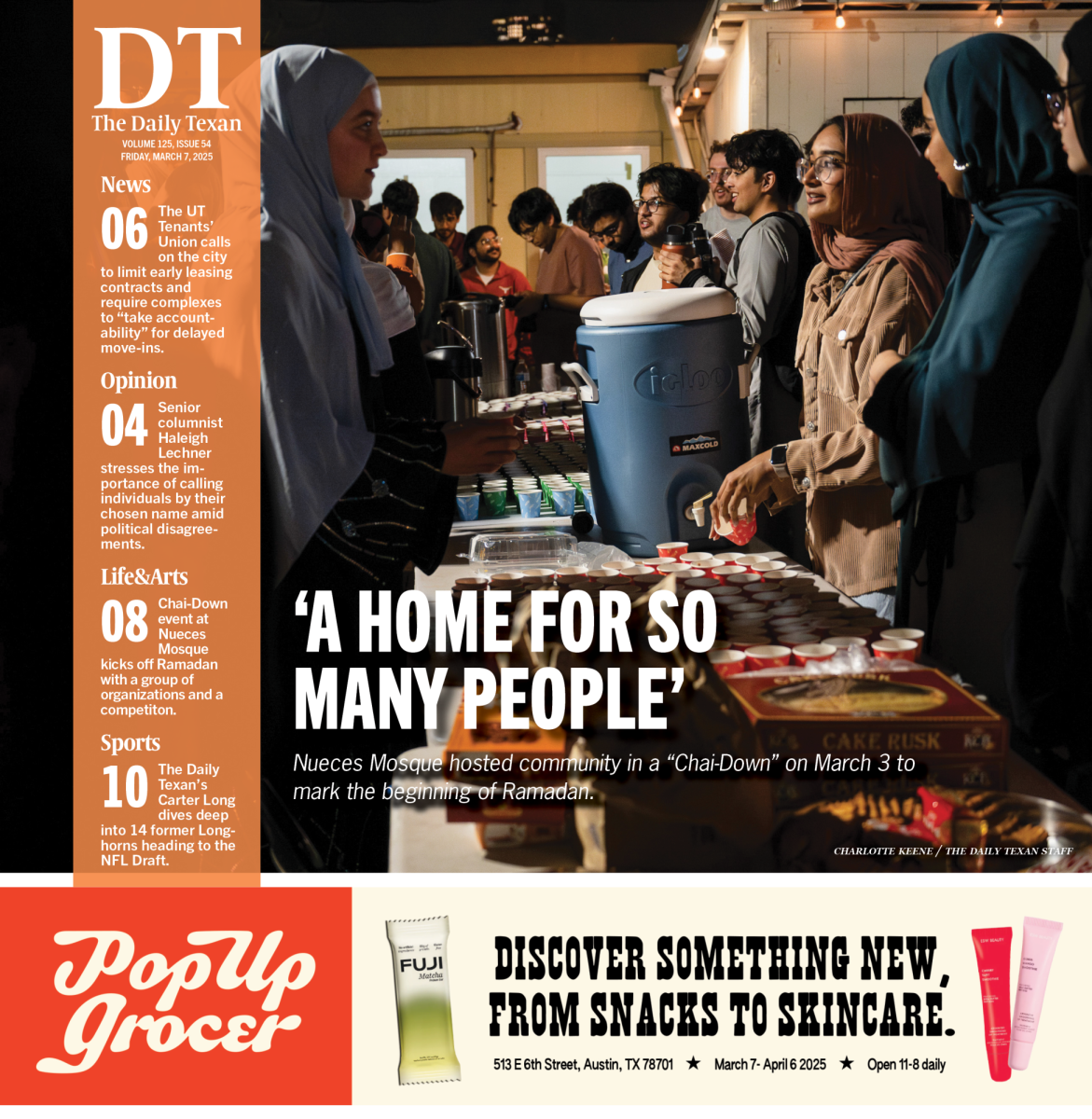Grant students more freedom when choosing math courses
April 3, 2022
During my first year at UT, I took two math classes, M 408K: Differential Calculus and M 408L: Integral Calculus. I felt as if I hadn’t learned a single thing during my time in those two classes, mostly due to my lack of a relationship with my professor, TAs and classmates and a struggle to engage with the material.
This issue extends across campus as more and more students are having different and unrewarding experiences in their math courses.
UT should allow students to shadow a math class for a week before officially enrolling, so they can gauge the atmosphere of the classroom and professor and determine if the teaching style is best for them.
One of the main issues students encounter in math classes is that the professor’s teaching style and their learning style do not go hand in hand.
Mechanical engineering freshman Preston Davis spoke on the different curriculum formats of the two mathematics classes he has taken, M 408D: Sequences, Series, and Multivariable Calculus and M 427J: Differential Equations with Linear Algebra.
“I prefer the format of this semester (M 427J) over last semester (M 408D) because … the homework isn’t for a grade,” Davis said. “It’s purely at your own pace to practice, and you can find the answers to the homework (which) shows you how well you’re doing. And if you screw up a problem, it’s not like ‘Oh, I lose points.’ It’s, ‘Oh, I’ll just try again and see what I did wrong.’”
Davis is one of the many students who found themselves enjoying one class over another purely because of the class format but continued taking a class that wasn’t to their liking due to the lack of options.
Another common issue expressed by students is the lack of engagement and connection they feel in their math courses.
Radio-television-film freshman James Garcia spoke on his differing experiences in two math classes, M 408D and M 408C: Differential and Integral Calculus.
“There’s a lot more ways to engage with material (in M 408D than in M 408C). There’s a lot more effort being put into making it interesting, … a lot of avenues to ask for help, … so I really have been impressed with that teacher a lot because even though I’m struggling, I don’t feel like I don’t have the resources to (get help),” Garcia said. “I am much more engaged.”
Students having inconsistent experiences with their math classes is an issue. It’s not only affecting what students are learning in their classes, but what experiences they leave college with.
Jennifer Austin, associate professor of instruction within the department of mathematics and undergraduate mathematics faculty advisor, touched on the recent efforts of the mathematics department to encourage more engagement among the different professors in their classes.
“We put together a Canvas course for every math course that is just for instructors, … as a place to organize materials we have for that course, for instructors to try out new features in Canvas, and to communicate and share ideas.” Austin said.
However, it’s going to take more than a Canvas page to really make sure all students are getting a quality learning experience.
UT should give all students a week at the beginning of each semester to try out different math classes to determine which one best suits their needs.
Students should have access to the syllabus, be surrounded by other students trying to find their place and hopefully form meaningful connections before getting stuck in a class filled with strangers.
“(This proposal) would be very helpful for someone who needs to be in that best environment, and at the very least, there needs to be some way for people to know they are in an environment for them,” Garcia said.
Requena is an environmental science freshman from Houston, Texas.












